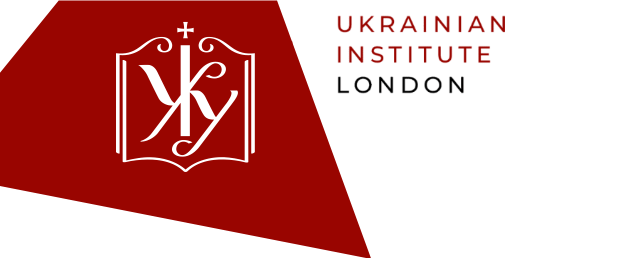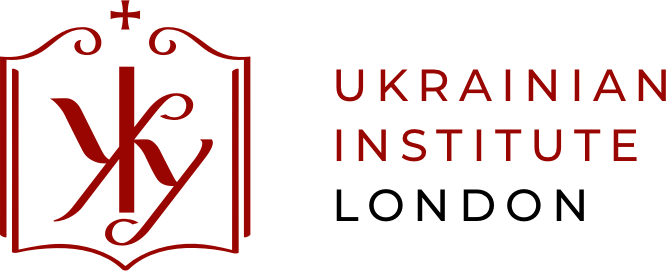The war in Ukraine is a battlefield in a global struggle between democracy and authoritarianism.

AUTHOR
James Bolton-Jones, Master’s student in Russian and Post-Soviet Politics at UCL School of Slavonic and East European Studies and Graduate of the Ukrainian Studies Programme at the University of Cambridge.
This inaugural event in the Ukrainian Institute London’s new season exploring the rich and complex culture and history of the Donbas region saw journalist Lucy Ash speak to historian Serhy Yekelchyk about why the war in Ukraine matters to the world.
War in Ukraine’s Donbas region has persisted for over six years, but the cause of the conflict is often misunderstood. As noted by Director of Ukrainian Institute London Olesya Khromeychuk, Russia’s role is often underestimated along with the war being misrepresented as an ethnic conflict.
Ash and Yekelchyk did a superb job of addressing these issues while exploring the conflict’s complexity and situating it in its wider context.
A global conflict
Yekelchyk began by emphasising that the war in Ukraine is a battlefield in a global struggle between democracy and authoritarianism. It is, he said, a proxy war between Russia and the West. While this conflict may be particularly pronounced in Ukraine, it cannot be solved by Ukraine alone because it is global. Efforts by the so-called Normandy Format involving Ukraine, Germany, Russia and France to broker peace have been unsuccessful. The West must put more pressure on Russia and Russia must change its position in order to reach an agreement, Yekelchyk said.
The war in Ukraine is a battlefield in a global struggle between democracy and authoritarianism.
Ukraine and the USA
Curiously, Yekelchyk’s new book, Ukraine: What Everyone Needs to Know, was rushed to the printers in North America, but has yet to be released in the UK. Why? Because his publishers were desperate to get the book out before November’s Presidential election, where after Trump’s impeachment Ukraine is a hot topic. Ukraine, Yekelchyk said, is an important test case for the West in democracy and economic transformation.
Ukraine, suggested Yekelchyk, faces up to problems which the West does not want to recognise in itself.
It is too often portrayed as the embodiment of corruption, but in Ukraine journalists are losing their lives fighting it, something seldom seen in the West. Ukraine, suggested Yekelchyk, faces up to problems which the West does not want to recognise in itself.
The nature of the conflict

Perhaps the greatest misunderstanding of the war in the Donbas is that it is an ethnic conflict. Yekelchyk remarked that he had dedicated his 2014 edition of The Conflict in Ukraine, What Everyone Needs to Know to his mother-in-law, a “Russian speaking patriot of Ukraine”. Neither a question of linguistic division nor ethnic strife, the conflict is instead a civic one fought on political lines, Yekelchyk said. He gave the example of the Heavenly Hundred – protestors killed by state security services during Ukraine’s Revolution of Dignity – who came from diverse religious and ethnic backgrounds. One of the most well-known victims, Serhiy Nigoyan, was Armenian.
Photo: Lucy Ash and Serhy Yekelchyk
The fraught role of history
From the beginning of the conflict, Ukrainian protestors demanding civic rights were portrayed as neo-Nazi fascists by Russian propaganda. This propaganda portrayed a dualistic picture of the world in which Russians were pitted against Ukrainian “fascists” descended from Nazis the Soviet Union battled in the Great Patriotic War. Ukrainians must avoid being locked into these strange binaries, Yekelchyk said. Instead, he urged to focus on Ukraine’s and especially the Donbas’ complexities and contradictions.
Disillusioned, abandoned, but resilient
Both Ash and Yekelchyk agreed that since the Russian annexation of Crimea in 2014, disillusionment has set in, both there and in the Donbas. Yekelchyk has heard complaints about the behaviour of Russian officials in Crimea, who seize and buy up land plots. Rather than being bankrolled by Russia, these regions have seen quality of life diminish.
Ukrainian society bounces back, it is resilient.
In the face of these problems, Ash asked Yekelchyk if he thought Ukrainians were becoming more cynical. No, Yekelchyk replied. Ukrainian society bounces back, it is resilient.
Watch the full event recording on our YouTube channel.



